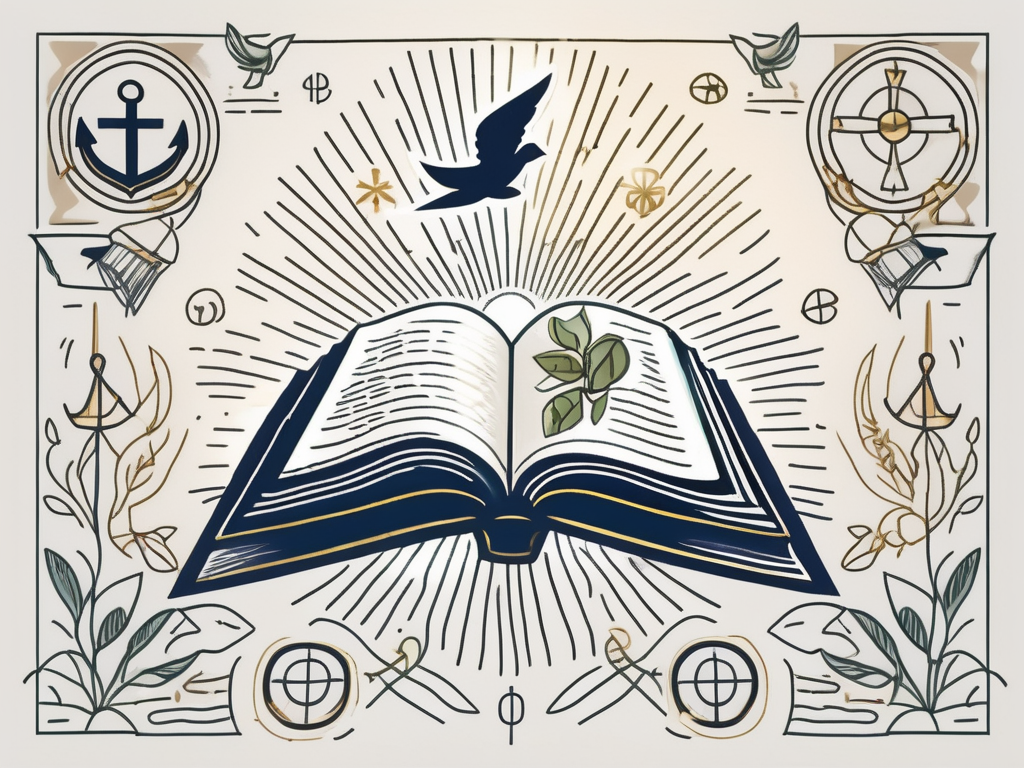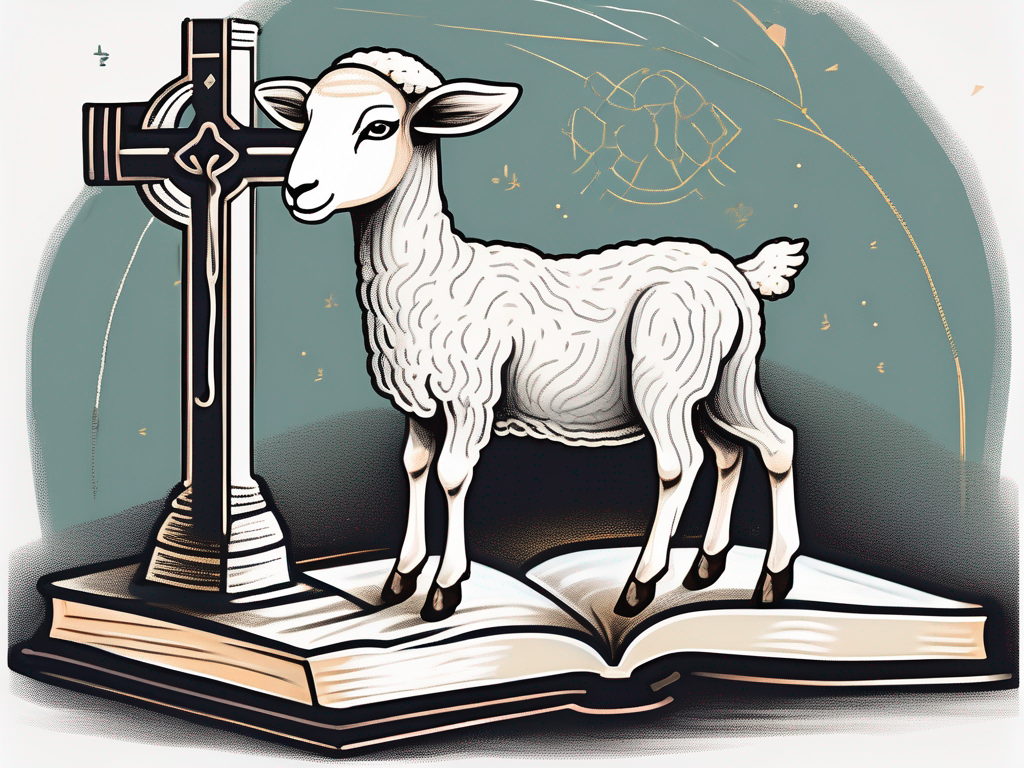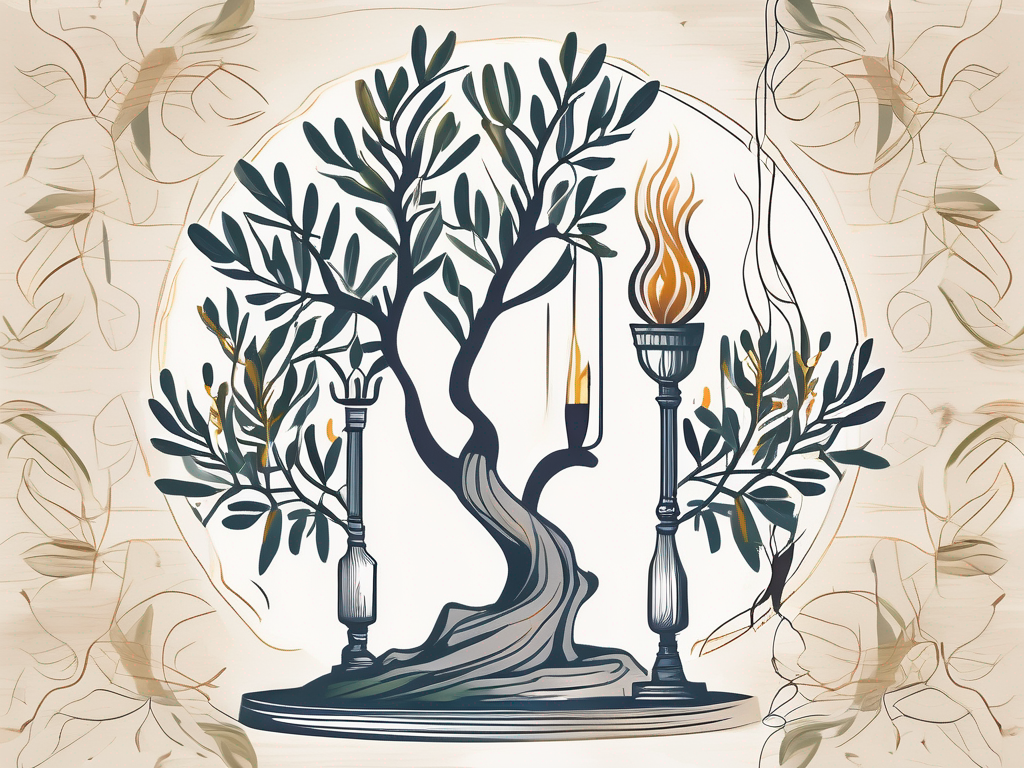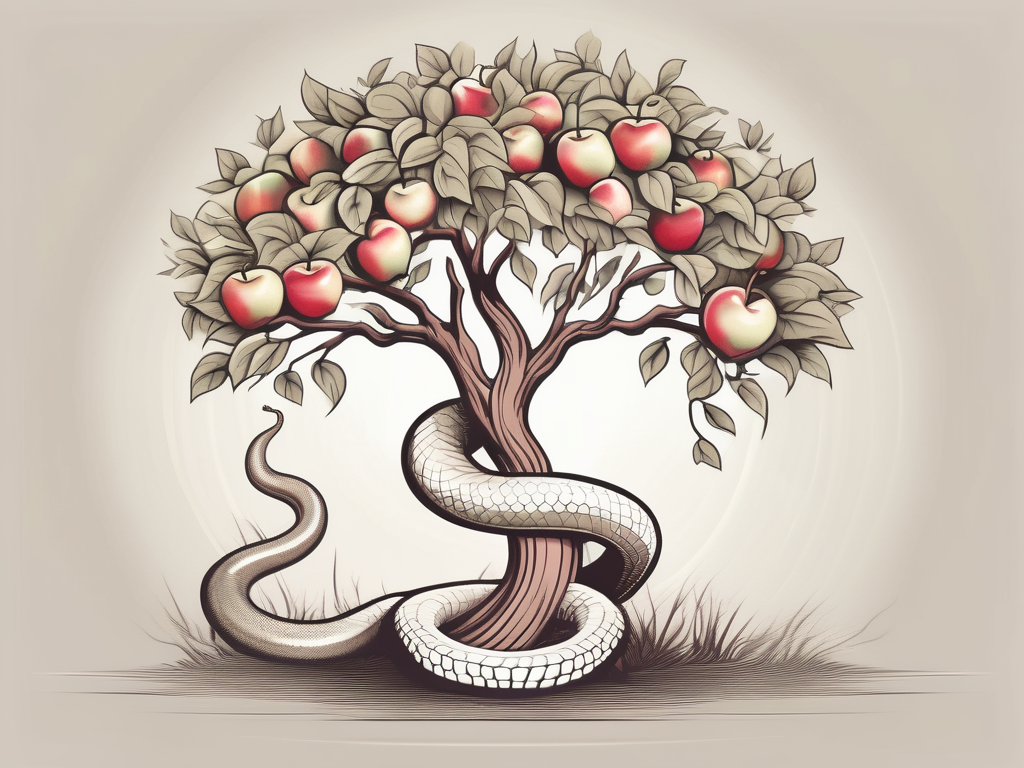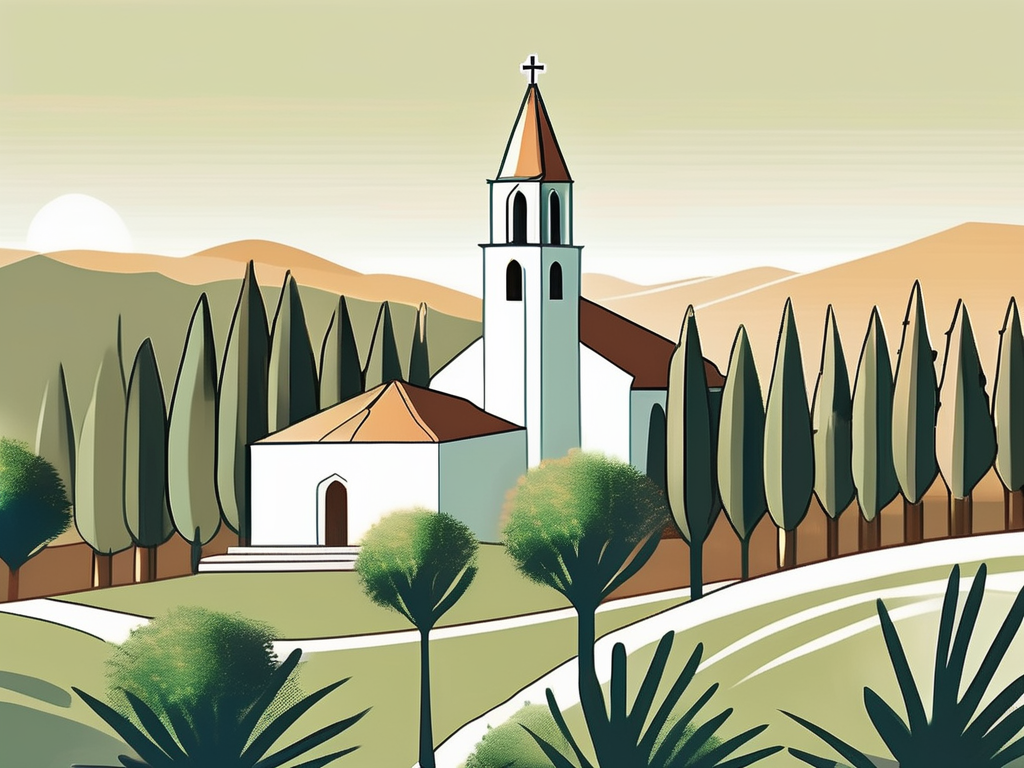Tamar is a figure in Judaism whose story is chronicled in the Book of Genesis. She is a complex character who plays a significant role in biblical narratives and has been subject to various interpretations throughout history. Understanding the historical context, Tamar’s role in the Bible, her character, and the interpretations of her story will shed light on her importance in Judaism.
Understanding the Historical Context of Tamar
When examining Tamar’s story, it is essential to consider the historical context in which it takes place. Tamar lived during a time when customs and societal expectations greatly influenced individuals’ lives. These societal norms and family dynamics played a pivotal role in her story.
The Time Period of Tamar
Tamar’s story takes place during the time of the patriarchs, a significant period in Jewish history. It was an era marked by the formation of the nation of Israel, the development of the Israelite people, and the establishment of core religious beliefs.
During this time, the Israelites were still a nomadic people, moving from place to place in search of fertile land and sustenance. They faced numerous challenges, including conflicts with neighboring tribes and the constant struggle for survival in an unforgiving environment.
The patriarchs, including Tamar’s own family, played a crucial role in shaping the destiny of the Israelite nation. Their actions and decisions had far-reaching consequences, influencing not only their immediate family but also future generations.
The Geographical Setting of Tamar’s Story
Tamar’s story unfolds in the land of Canaan, the promised land of the Israelites. This region was known for its diverse landscapes, ranging from fertile plains to rugged mountains. The land was blessed with abundant natural resources, making it an attractive destination for various tribes and civilizations.
In Canaan, Tamar would have encountered bustling ancient cities, each with its unique culture and traditions. She would have witnessed the vibrant marketplace, where merchants from different regions gathered to trade goods and exchange ideas. The city walls would have provided a sense of security, protecting its inhabitants from external threats.
Moreover, Canaan was a cultural melting pot, with different tribes and ethnic groups coexisting in close proximity. Tamar would have been exposed to a rich tapestry of languages, customs, and beliefs, shaping her worldview and influencing her interactions with others.
As Tamar navigated through the landscapes of Canaan, she would have encountered various natural wonders. From the lush green valleys to the majestic rivers, the land would have captivated her with its beauty and reminded her of the divine presence that guided her journey.
Overall, the historical context and geographical setting of Tamar’s story provide a deeper understanding of the challenges and opportunities she faced. It allows us to appreciate the complexity of her experiences and the significance of her actions within the broader tapestry of ancient history.
Tamar’s Role in the Bible
Tamar’s presence in the Bible serves several important purposes. Understanding her role in the overarching narrative is crucial to appreciating her significance in Judaism.
Tamar’s story is a captivating tale of resilience and determination that unfolds in the Book of Genesis. As the daughter-in-law of Judah, a prominent figure in the Israelite lineage, Tamar’s journey is one of strength and agency.
When Tamar’s first husband, Er, dies, she is left without a child to carry on his name and secure her future. In accordance with the customs of the time, Tamar is given to Er’s brother, Onan, to fulfill the duty of a levirate marriage. However, Onan refuses to fulfill his obligation and spills his seed on the ground, denying Tamar her right to bear a child.
Undeterred by the obstacles in her path, Tamar takes matters into her own hands. She disguises herself as a prostitute and waits for Judah, her father-in-law, by the roadside. Judah, unaware of her true identity, sleeps with her and leaves her with his seal, cord, and staff as collateral for payment.
When Tamar is later discovered to be pregnant, Judah is outraged and demands her punishment. However, Tamar reveals the items left by Judah as proof of his involvement, forcing him to acknowledge his own wrongdoing. In a powerful moment of truth and redemption, Judah admits his mistake and declares that Tamar is more righteous than he.
Tamar in the Book of Genesis
Tamar’s story in the Book of Genesis is a testament to her unwavering determination and resourcefulness. Her actions showcase her strength and agency as she navigates challenging circumstances to secure her future and fulfill her rights.
Through her boldness and courage, Tamar ensures that her husband’s name is not forgotten and that her own place in the lineage is secured. Her story serves as a reminder that sometimes, in the face of adversity, one must take unconventional paths to achieve justice and ensure their own well-being.
Tamar’s Significance in the Lineage of David
Tamar’s story is intricately linked to the lineage of David, the legendary King of Israel. Her actions play a crucial role in ensuring the continuity of the family line, which ultimately leads to the birth of David. This connection underscores her importance in Jewish traditions and the ancestry of King David.
As Tamar’s son, Perez, grows up, he becomes the ancestor of King David. This lineage is not without its own complexities and challenges, but Tamar’s role in securing the family line cannot be overstated. Her determination and resourcefulness set in motion a series of events that shape the future of the Israelite monarchy.
By highlighting Tamar’s significance in the lineage of David, the Bible emphasizes the importance of her story and the impact of her actions. Tamar’s legacy serves as a reminder of the strength and resilience of women throughout history and their ability to shape the course of events even in the face of adversity.
Tamar’s Character and Actions
Tamar’s character and actions portray her as a complex and resilient individual. Exploring her relationship with Judah and her courage in challenging circumstances sheds light on her character.
Tamar, a woman of remarkable strength and determination, defies societal expectations and emerges as a powerful figure in biblical history. Her story is a testament to the indomitable spirit of women, even in the face of adversity.
Tamar’s Relationship with Judah
Tamar’s relationship with Judah, her father-in-law, is a central element of her story. It highlights the complexities of family dynamics and the power dynamics within ancient societies. Tamar, a woman bound by the constraints of her time, navigates this intricate relationship with grace and intelligence.
Despite the patriarchal structure of the society she lived in, Tamar refuses to be a passive victim. She recognizes the injustice she faces and takes matters into her own hands, challenging the established norms and asserting her agency.
In her pursuit of justice and her determination to secure her rights, Tamar displays not only her resourcefulness but also her deep understanding of the power dynamics at play. She strategically employs her wit and cunning to outmaneuver Judah, revealing her shrewdness and ability to navigate complex situations.
Tamar’s Courage and Determination
Tamar’s story showcases her unwavering courage and determination to secure her rights and protect her future. Despite the societal norms and obstacles she faced, she exhibited strength and resilience, leaving a lasting impression on Judaism.
Her unwavering commitment to justice and her refusal to accept a life of oppression make Tamar an inspiration for generations to come. Her story serves as a reminder that even in the most challenging circumstances, one can find the strength to rise above and fight for what is rightfully theirs.
Tamar’s courage is not only evident in her actions but also in her unwavering belief in herself. She refuses to let the limitations imposed upon her define her worth or determine her destiny. Instead, she takes control of her own narrative, forging a path that defies societal expectations and leaves an indelible mark on history.
Interpretations of Tamar’s Story
The story of Tamar has sparked various interpretations throughout history, examining its meaning from different perspectives aids our understanding of its relevance within Judaism.
Tamar’s Story from a Feminist Perspective
Many feminist scholars view Tamar’s story as empowering, highlighting her agency and resistance against the patriarchal system. Her actions represent a courageous stand against an unjust society, serving as inspiration for women seeking empowerment within Judaism.
Theological Implications of Tamar’s Story
Tamar’s story also holds theological implications in Judaism. It raises questions about themes such as justice, redemption, and divine intervention. The interpretation of God’s role in the narrative adds depth and spiritual significance to Tamar’s story.
Tamar’s Legacy in Judaism
Tamar’s story continues to resonate within Judaism and has left a lasting impact through various artistic and literary expressions.
Tamar in Jewish Literature and Art
Tamar’s story has inspired numerous literary works and artistic representations throughout Jewish history. Her tale serves as a source of inspiration, reflection, and exploration of Jewish identity, faith, and values.
Modern Jewish Perspectives on Tamar
In modern times, Tamar’s story continues to be discussed within Jewish communities, fostering conversations around gender roles, justice, and the evolving nature of Jewish tradition. Her legacy challenges individuals to reflect on their own beliefs and interpretations of ancient texts.
In conclusion, Tamar’s story in Judaism holds significant historical, religious, and societal value. Understanding her role in the biblical narrative, her character, and the various interpretations of her story provides insights into Judaism’s rich and diverse tapestry. Tamar’s strength, resilience, and determination continue to inspire and resonate within the Jewish community, sparking meaningful conversations and reflections on faith, social justice, and the human experience.

